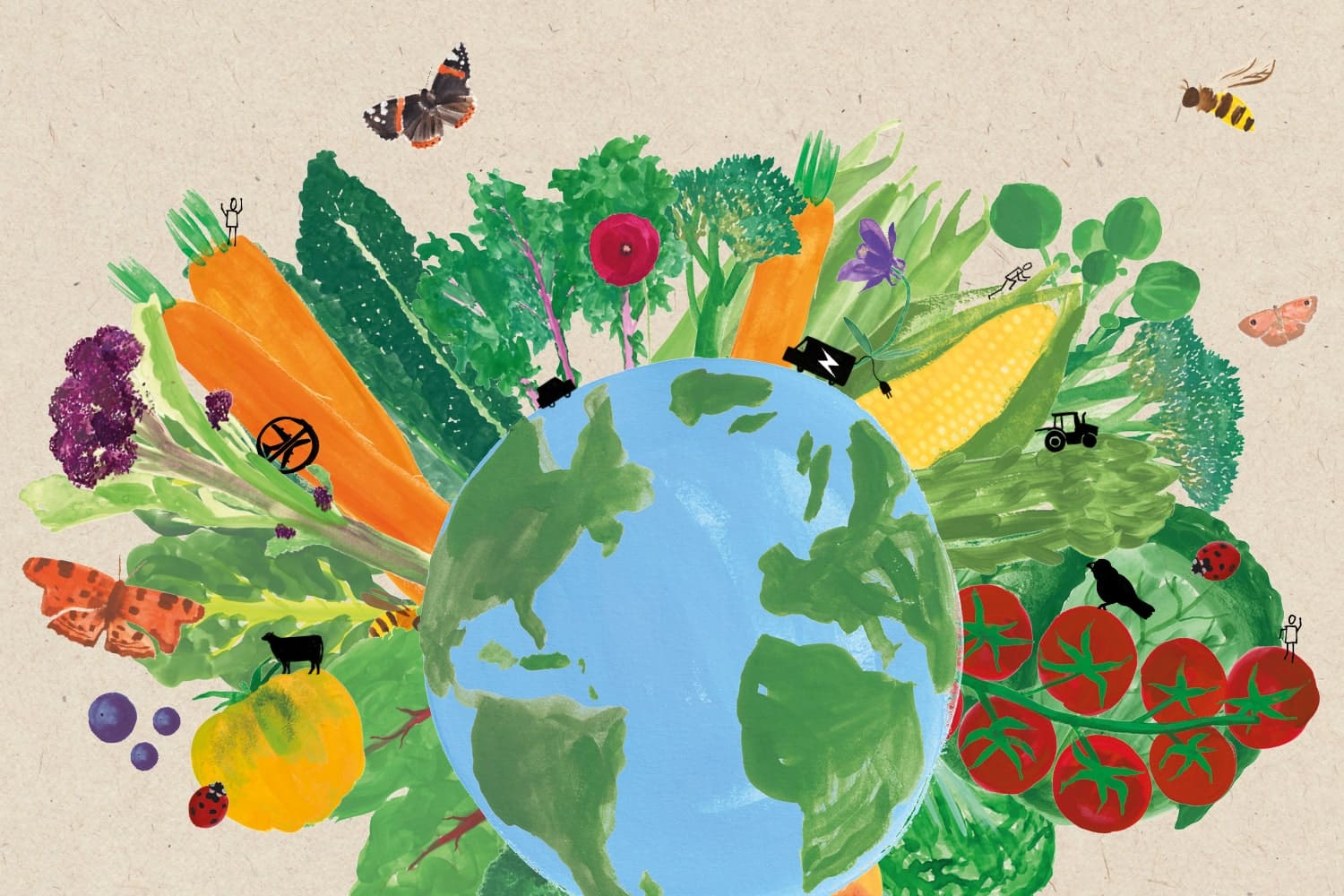The past year showed us how fragile our food system is. At the sharp end of this, fuel, feed and fertiliser prices are pushing farmers costs up dramatically, amidst the biggest subsidy shake up in decades.
Consumers are finally seeing this fragility and the fact that the climate crisis is affecting the UK. This year’s drought is yet another wake-up call for everyone.
Farming is characterised by high dependence on natural resources and volatile responses to international markets: from labour shocks to political reforms and climate change. All have significant bearing on how we produce food in this country.
But increasing resilience won’t be done with a silver bullet. It requires editing of the whole food system, from farms, to packing and distribution, and in homes.
We must reduce carbon emissions on farms and in distribution, and sequester carbon in trees, hedgerows and soils where we can; we must farm for nature and improve our waterways and soil, or we will suffer from even more extreme weather events caused by climate change, and we will fail to produce nutritious food in the future.
Moving to distribution that has a lower impact (e.g. electric vans) is imperative; as is circularity in our packaging to reduce plastic pollution with compostable and widely recyclable packaging. Just as important is helping people tackle food waste in the home with recipes and tips online.
Leaving any area of the food system un-edited makes us vulnerable to shocks: climate change, international markets and energy security. And it is this issue of resilience that is focusing the sustainability team’s work at Riverford in the years ahead.
Moving to distribution that has a lower impact (e.g. electric vans) is imperative; as is circularity in our packaging to reduce plastic pollution with compostable and widely recyclable packaging.
The to-do list
Tackling the climate crisis is high on our agenda – we have committed to net zero in our operations by 2030 and are already well into our carbon reduction plan. In fact, since we started measuring our footprint in 2017-18, we have reduced our per delivery emissions by 29 per cent; and over the past year our absolute emissions reduction was 12 per cent. You can read our latest sustainability report to see how we have achieved this.
We are also working hard on our residual emissions (what’s left when we can’t reduce any further) using verified offset partners. We will sequester 27,000 tonnes of CO2e (carbon dioxide equivalence) through fruit tree agroforestry systems in Ethiopia with our long-standing charity partner, Ripple Effect.
Riverford continues to drive down plastic use, with our move to home compostable plastics helping us save over 30 tonnes of plastic over the past year and we have reduced our per delivery plastic usage by 14.5 per cent.
Tackling the climate crisis is high on our agenda – we have committed to net zero in our operations by 2030 and are already well into our carbon reduction plan.
We are looking to double our solar panel capacity over the next year, while our focus on nature has led to our first biodiversity action plan (at Wash Farm in Devon), with more work to boost nature on farms in the pipeline this winter.
Bringing climate, nature and farm resilience together, we have established 1,600 trees in agroforestry systems across Devon, with a targeted 5,000 more trees in winter 22-23.
Finally, we have kicked off our Farm for the Future programme – we are trialling whole farm assessments across six categories (soils, water, biodiversity, carbon emissions/sequestration, animal welfare and social metrics) with a new project called the Soil Association Exchange.
We’ve also been working in partnership with Yeo Valley and the Farm Carbon Toolkit, benchmarking the carbon footprint of our home farms within a community of other organic farmers. This will provide farmers with an environmental baseline from which we will work with them to tackle key issues of resilience, climate action and nature on farms.
As part of Farm for the Future, we’re looking at how we combine regenerative methods with the incredible baseline organic already provides us with.
Organic farming has huge benefits for climate, nature, soils and waterways, but it retains some issues of conventional agriculture – things like excessive ploughing to deal with weeds and no compulsory plant diversity, meaning organic monocultures are prevalent.
We will be using Farm for the Future to tackle these issues and use more ‘regenerative techniques’ (e.g. agroforestry for improved plant diversity and climate resilience, and reduced ploughing to improve soil health) on top of organic practices.
I’m proud of what we’ve achieved this year but there is plenty more to do.
Find out more about Riverford’s planet action here.










Zac, Thank you so much for the hard work and excellent planning that is really moving Riverford and it’s customer base forward. Totally appreciate the analysis, selection of priorities, and much more. Truly excited by and looking forward to the promised progress! Go team Riverford!